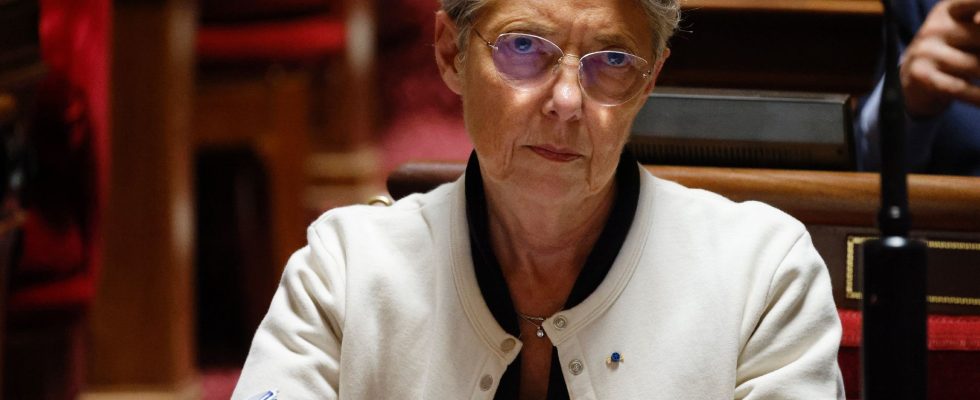At the very top of the homepage of the Human Rights League website, the banner of a black and white photo is displayed. On the picture, two demonstrators are on the ground, in the middle of a group of CRS charging. And as the images can deceive, the message “#StopViolencesPolicières” is responsible for explaining the position of the association for the defense of freedoms with regard to the management of the maintenance of order during the recent demonstrations against the pension reform. A criticism to which is added the denunciation of possible obstacles to relief workers who wanted access to people injured during the prohibited demonstration against the Sainte-Soline mega-basin site on March 25. It is easy to understand why the LDH, founded in 1898, is currently not in the odor of sanctity within the government.
A decree “attacked” on the sidelines of Sainte-Soline
Gérald Darmanin, during hearings before Parliament last week, had thus declared that “the subsidy given by the State” to the LDH “deserves to be looked at within the framework of the actions which have been carried out”, not without cause an uproar on the left. Elisabeth Borne, this Wednesday, April 12, followed suit, denouncing before the Senate the attitude of the association, of which she “no longer understands certain positions”. “I hope, like all members of the government, that the human rights support associations continue their watchdog action,” she said, however.
And the Prime Minister recalled that the League for Human Rights had “attacked a decree prohibiting the transport of weapons by destination to Sainte-Soline”, in the Deux-Sèvres. An accusation that his Minister of the Interior had already made, and which had made the LDH react in a press release: “The LDH has lodged an appeal in principle for interim release against the orders taken by the prefect of Deux-Sèvres and the prefect of Vienne providing for the prohibition of “weapons by destination”. projectile”.
“Ambiguities with radical Islam”
But Elisabeth Borne also attacked the association on another point, its supposed “ambiguities with radical Islamism”. The subject is not new, the LDH having been singled out several times for its blunt positions against radical Islam. “This misunderstanding (…) has emerged in its ambiguities in the face of radical Islamism and they have been reinforced for a few months,” she said, stressing that this feeling is “shared by many actors of the associative world”, evoking a letter sent by the Licra to the national advisory commission on human rights to point out “the excesses and failures of the League of Human Rights”.
In November 2019, the LDH notably called for participation in the controversial “march against Islamophobia”. A few years earlier, the association had been criticized – in particular by the lawyer Richard Malka – for not having sent a representative to the trial of the attacks of Charlie Hebdo and Hyper Cacher. She also spoke out against the 2004 law prohibiting the wearing of religious symbols at school. In 2006, two former members of the central committee of the LDH, Antoine Spire and Cédric Porin, had also resigned, denouncing, in a column published in The worldthe timid support given to Robert Redeker, a philosopher threatened with death for having criticized Islam, but whose ideological position did not please the LDH.
The words of Elisabeth Borne have in any case reacted strongly to the president of the association Patrick Baudouin, “The amalgam that Madame Borne makes bristles and revolts me, he reacted to AFP. is the fight that I have carried out almost all my life”. And to add: “I do not impugn her intentions but I find that she gives in to little sirens who make her slide towards remarks that are not acceptable with regard to us (…) I know that it is a little music that runs on the side of some of our opponents located rather on the right, even on the far right”. The lawyer specializing in international criminal justice has also written to the Prime Minister to request an appointment, saying he is “ready for a public debate, to expose, to exchange, possibly in relation to the criticisms” which are done.
